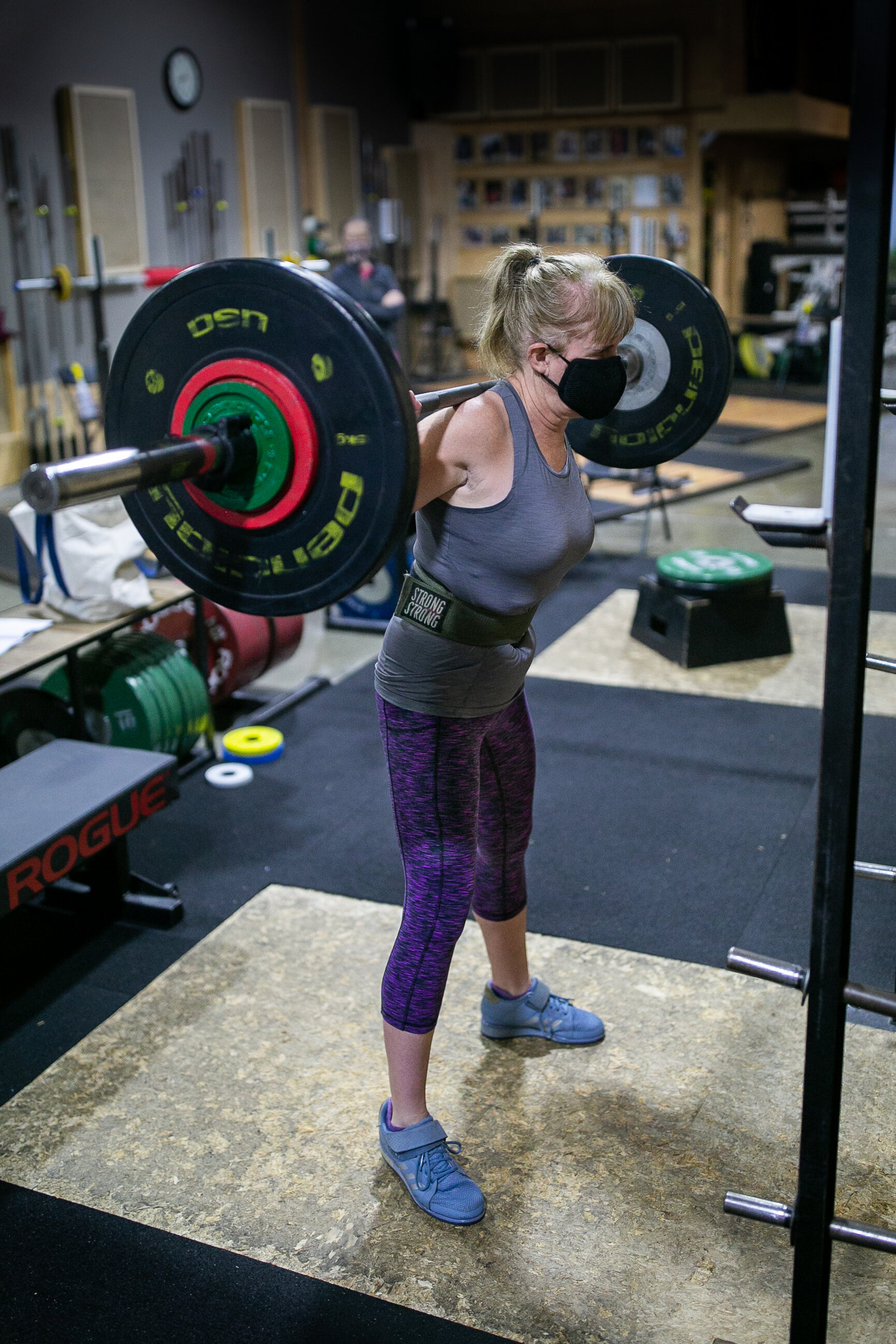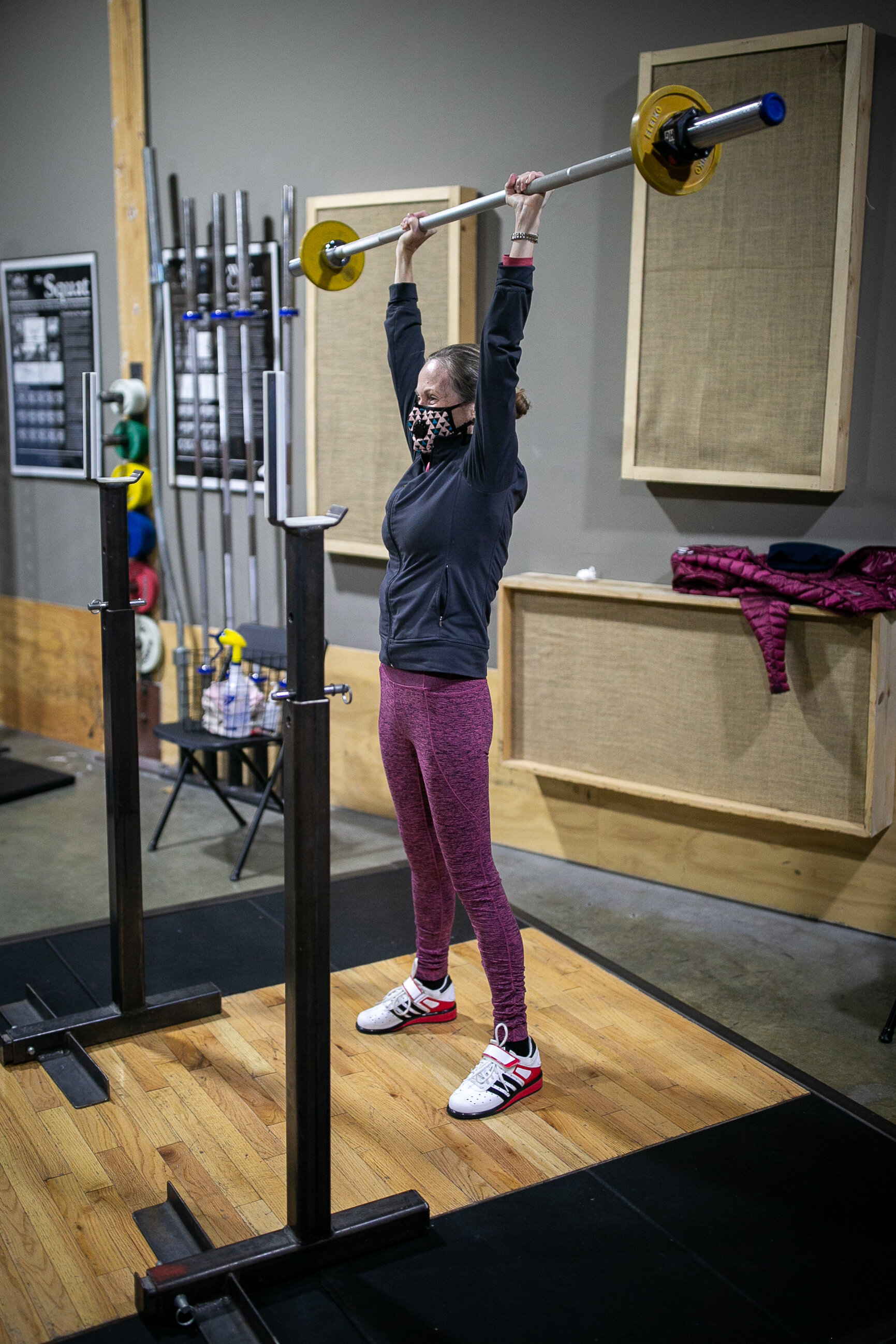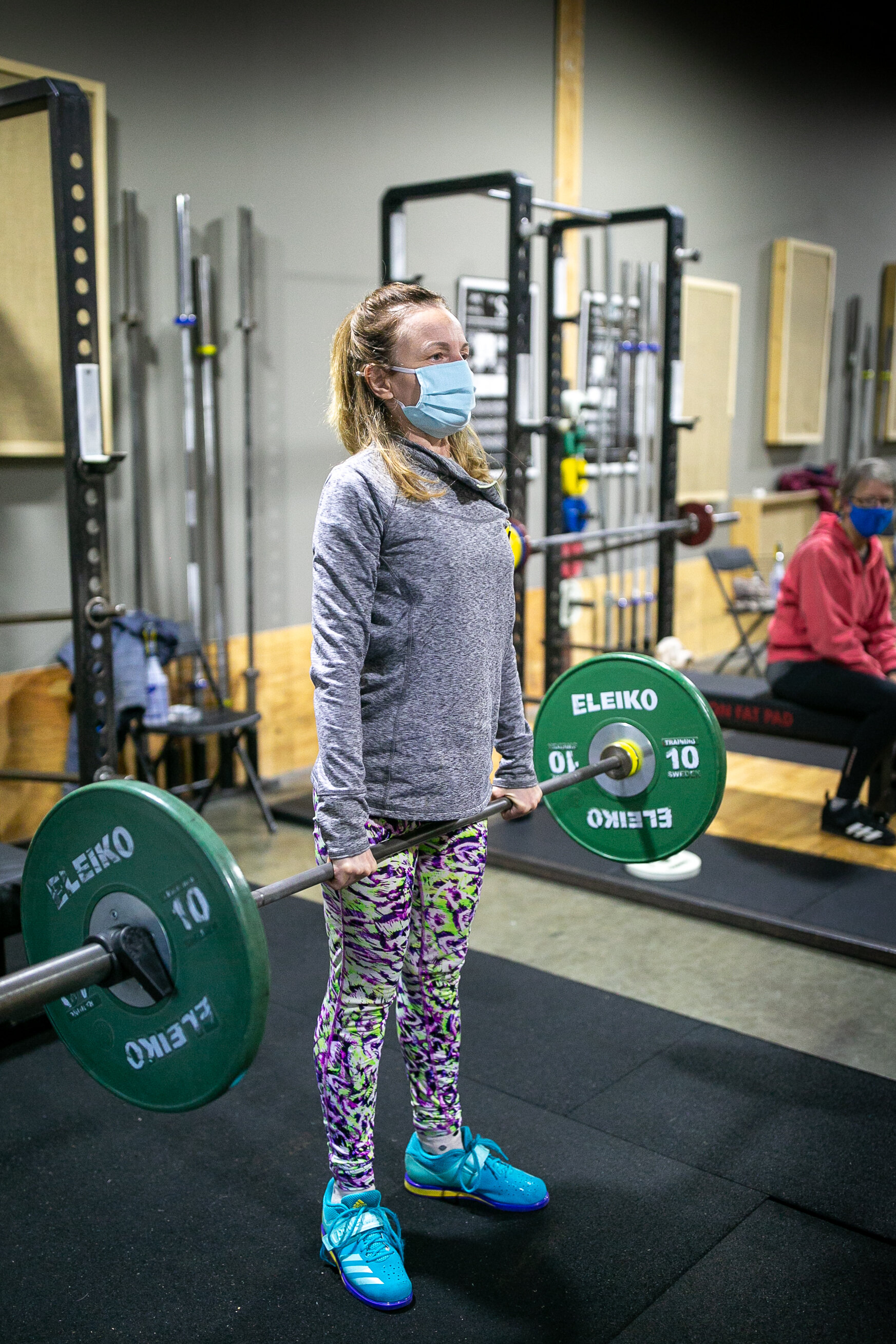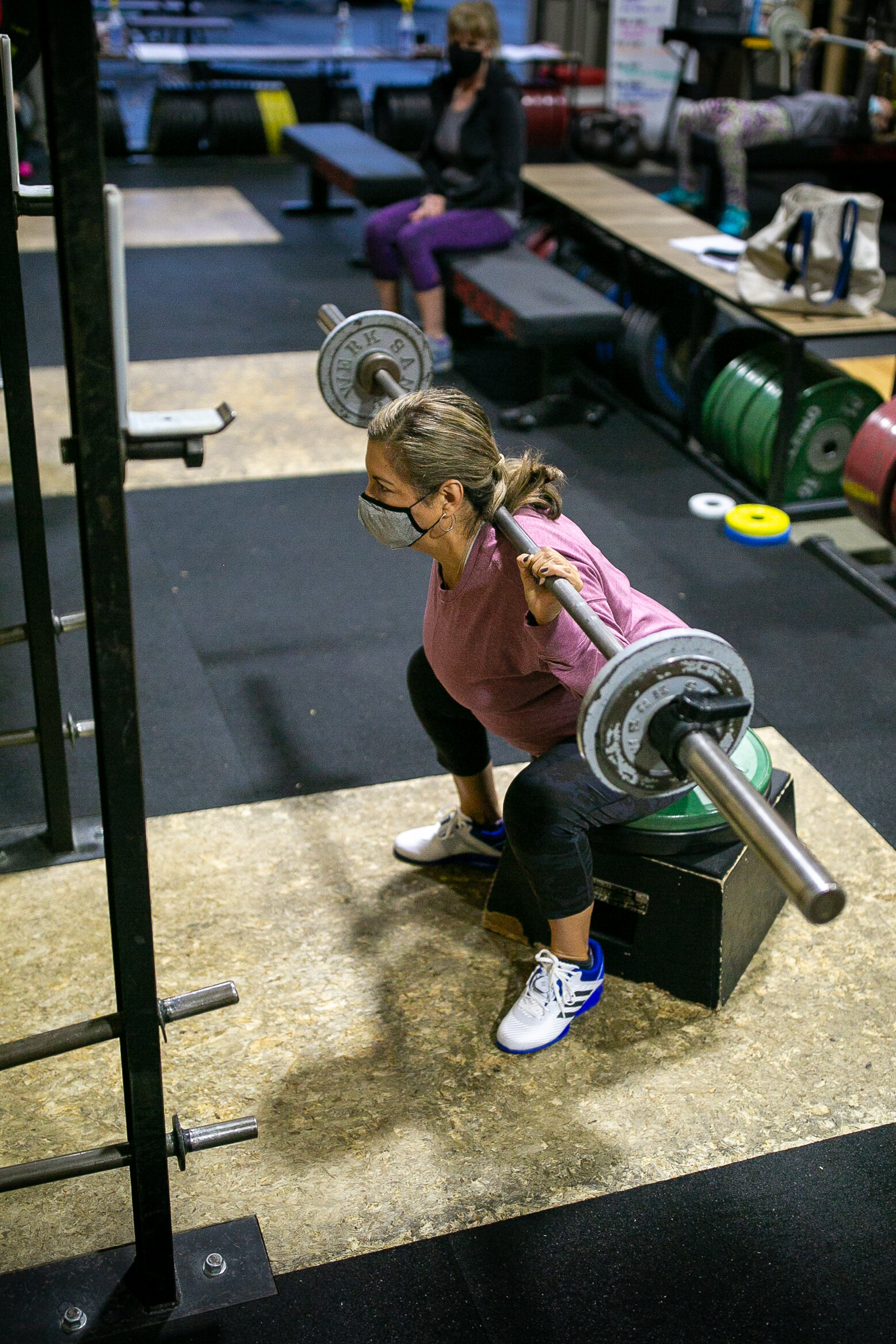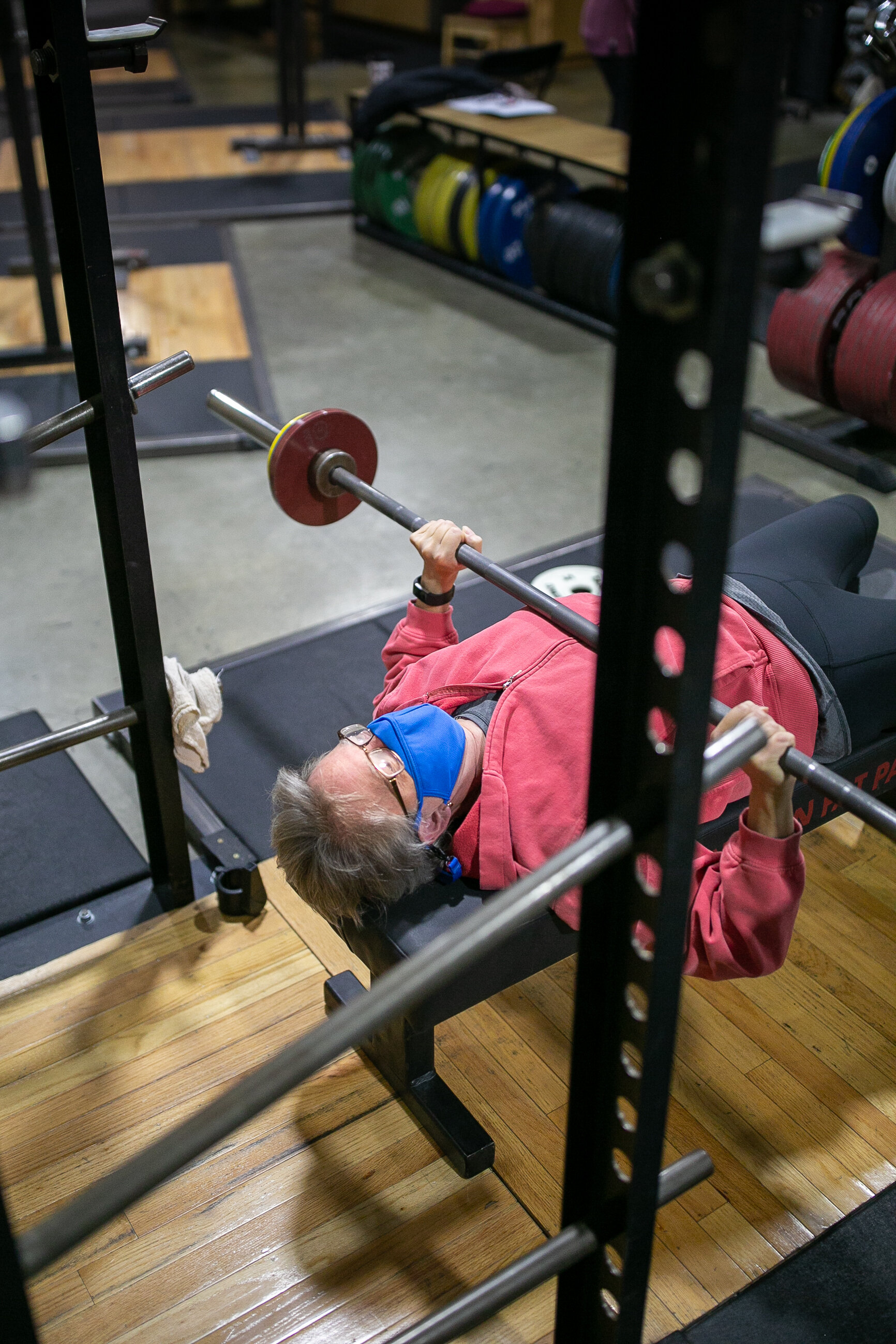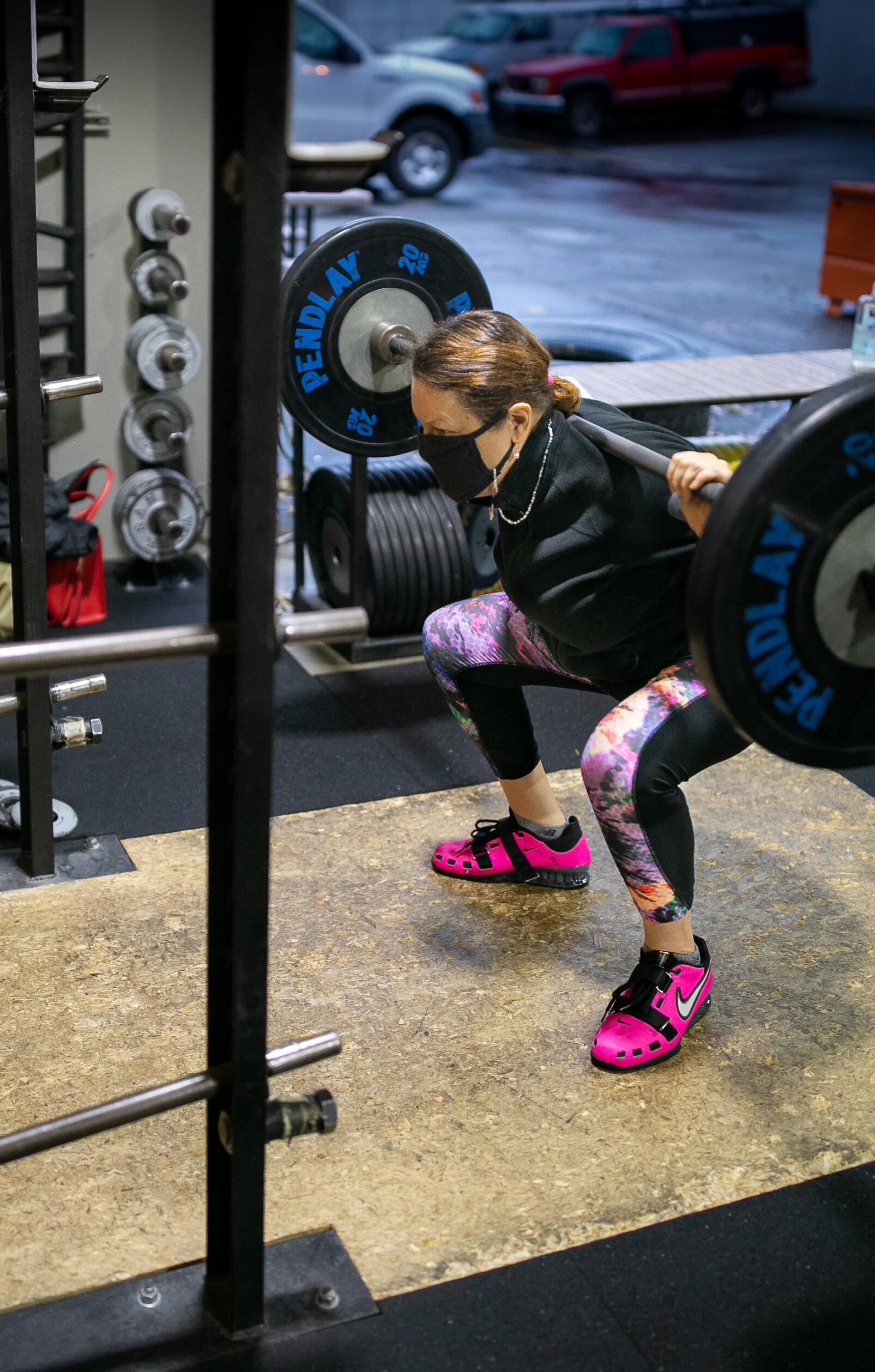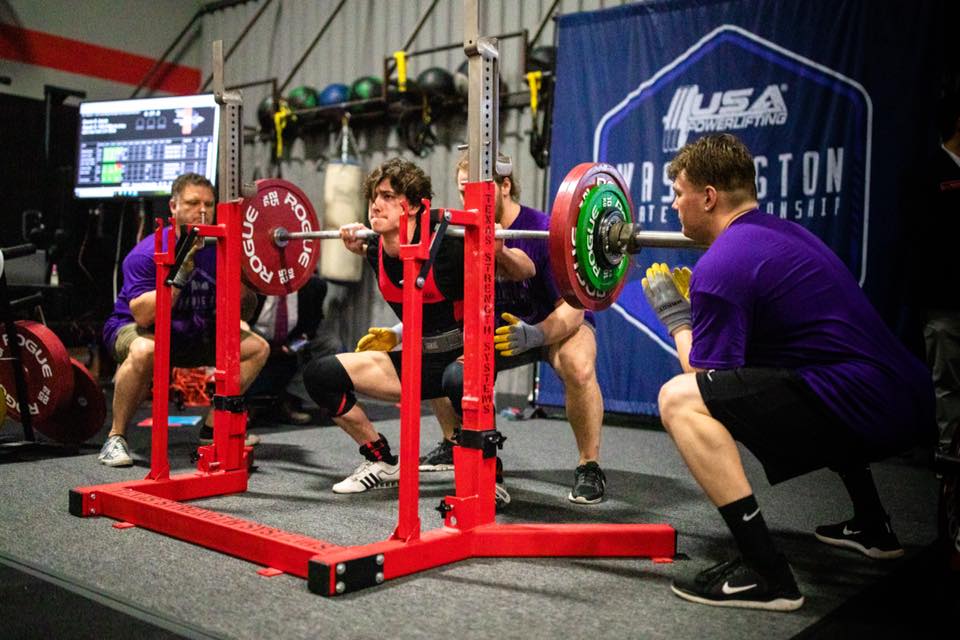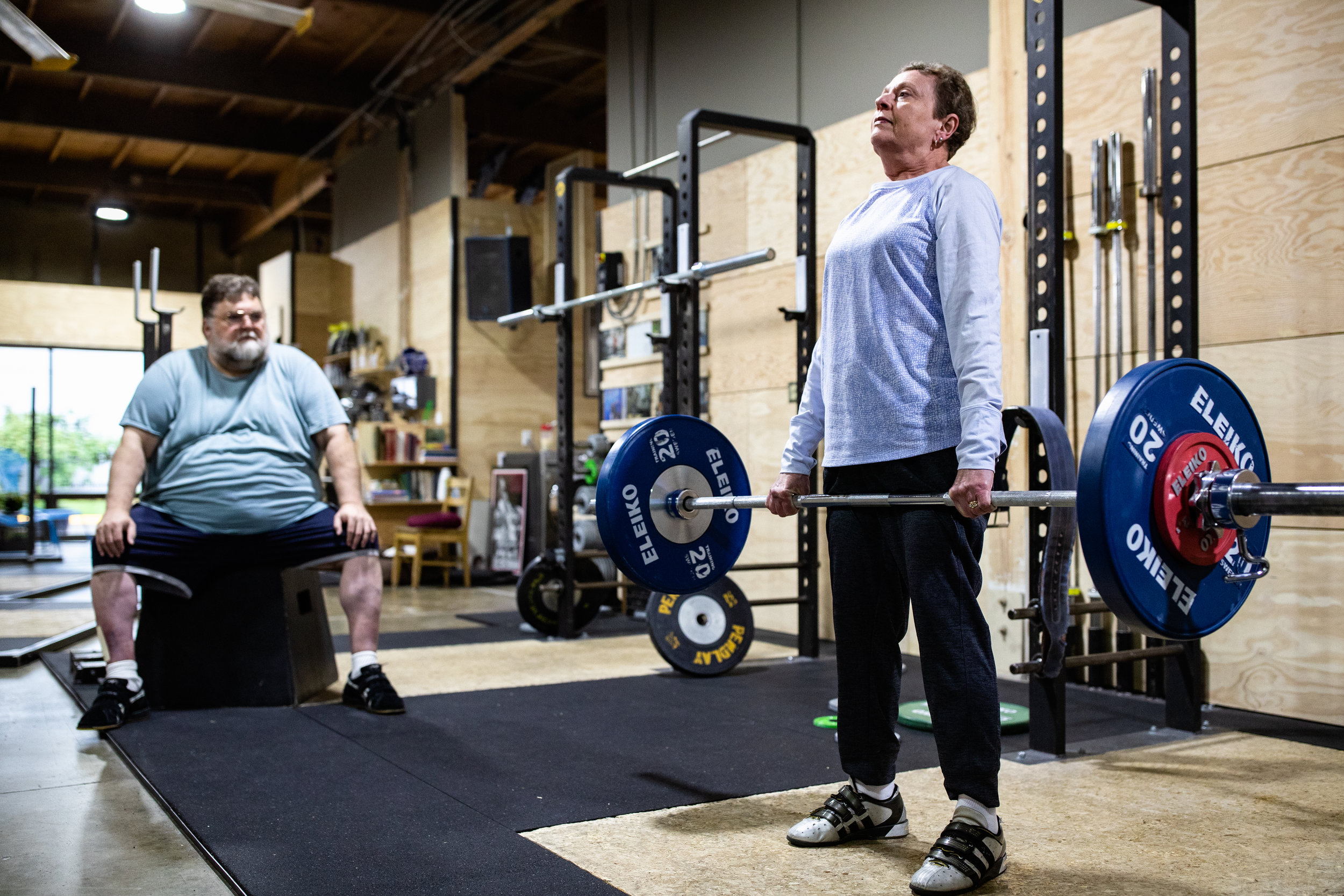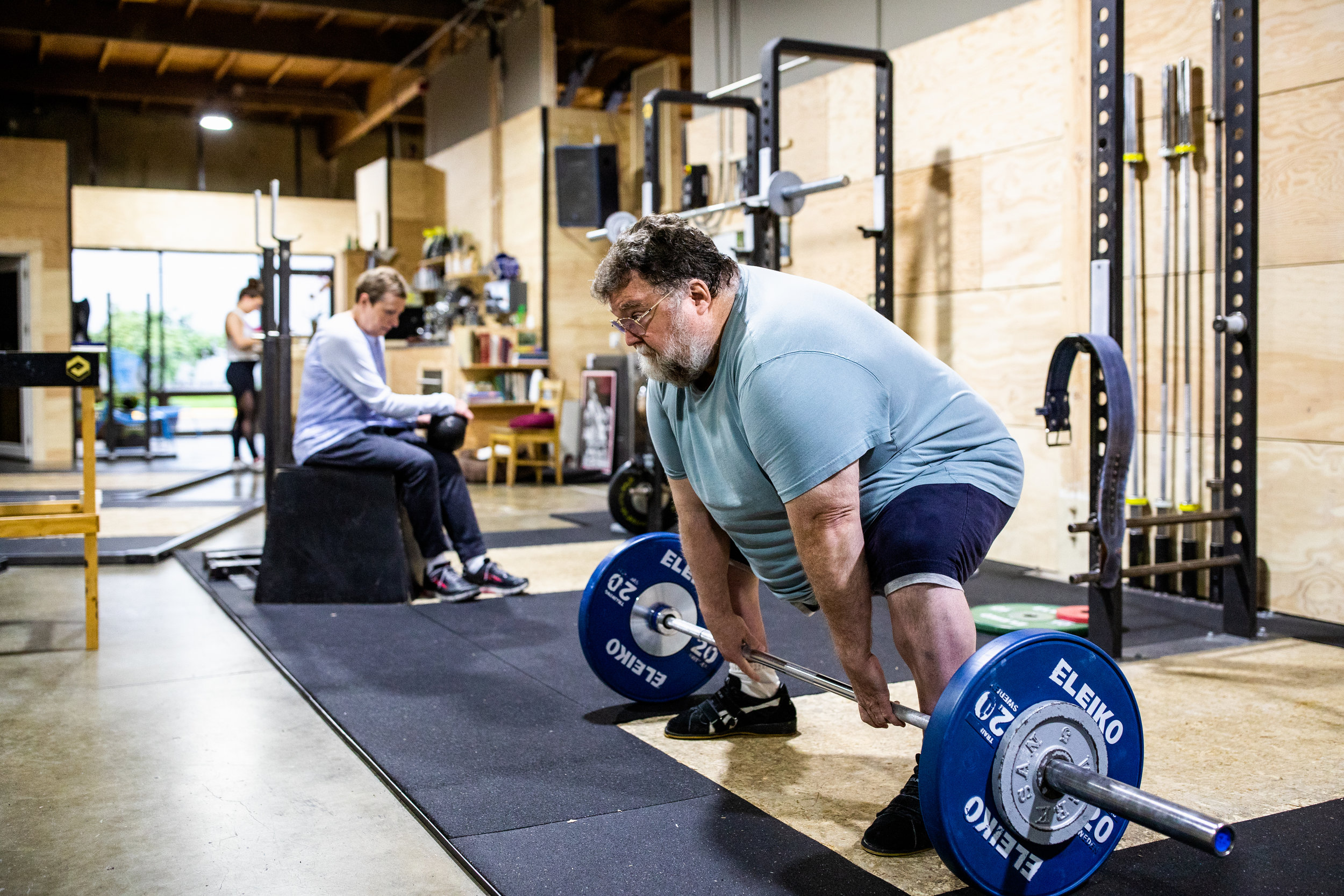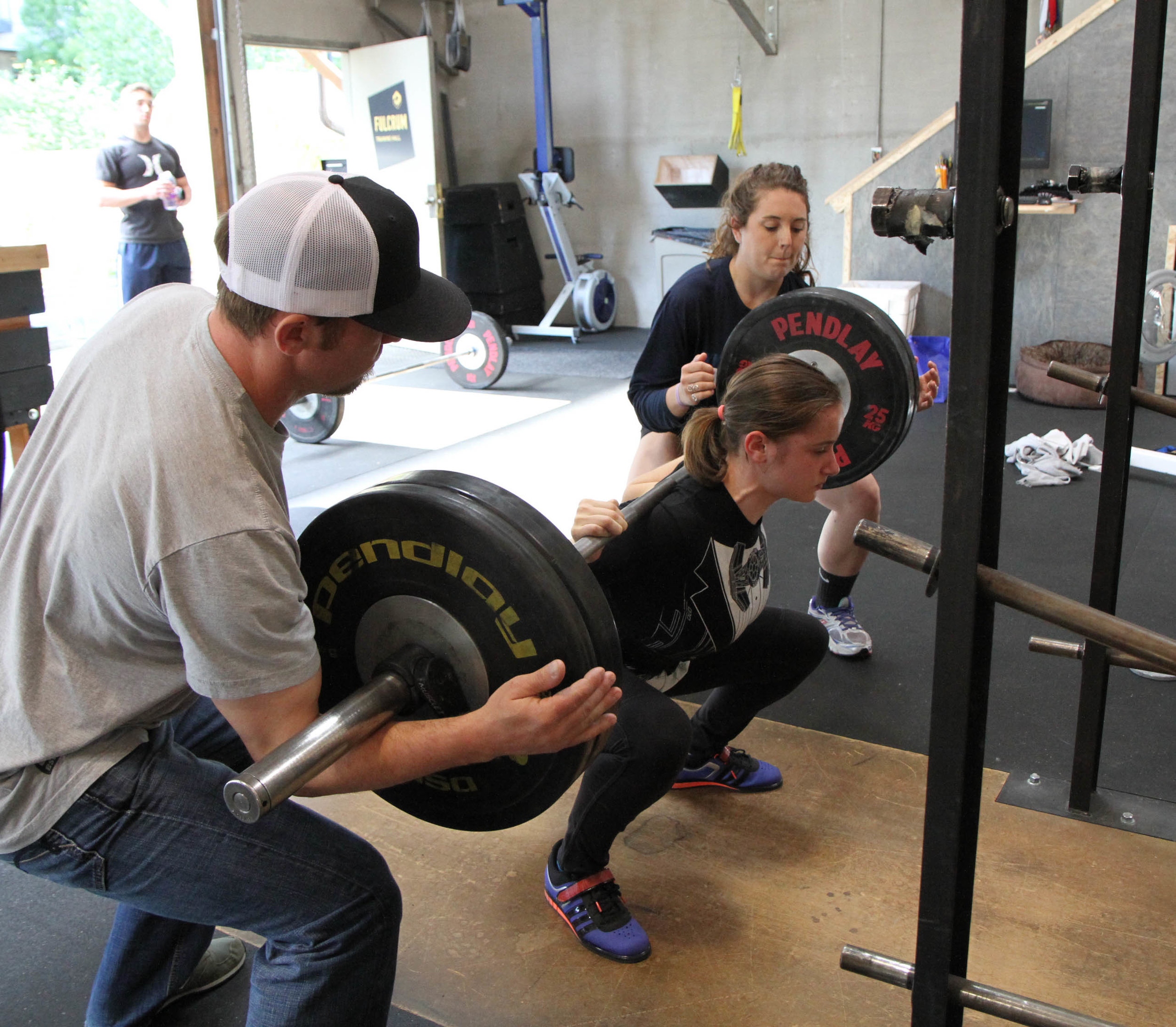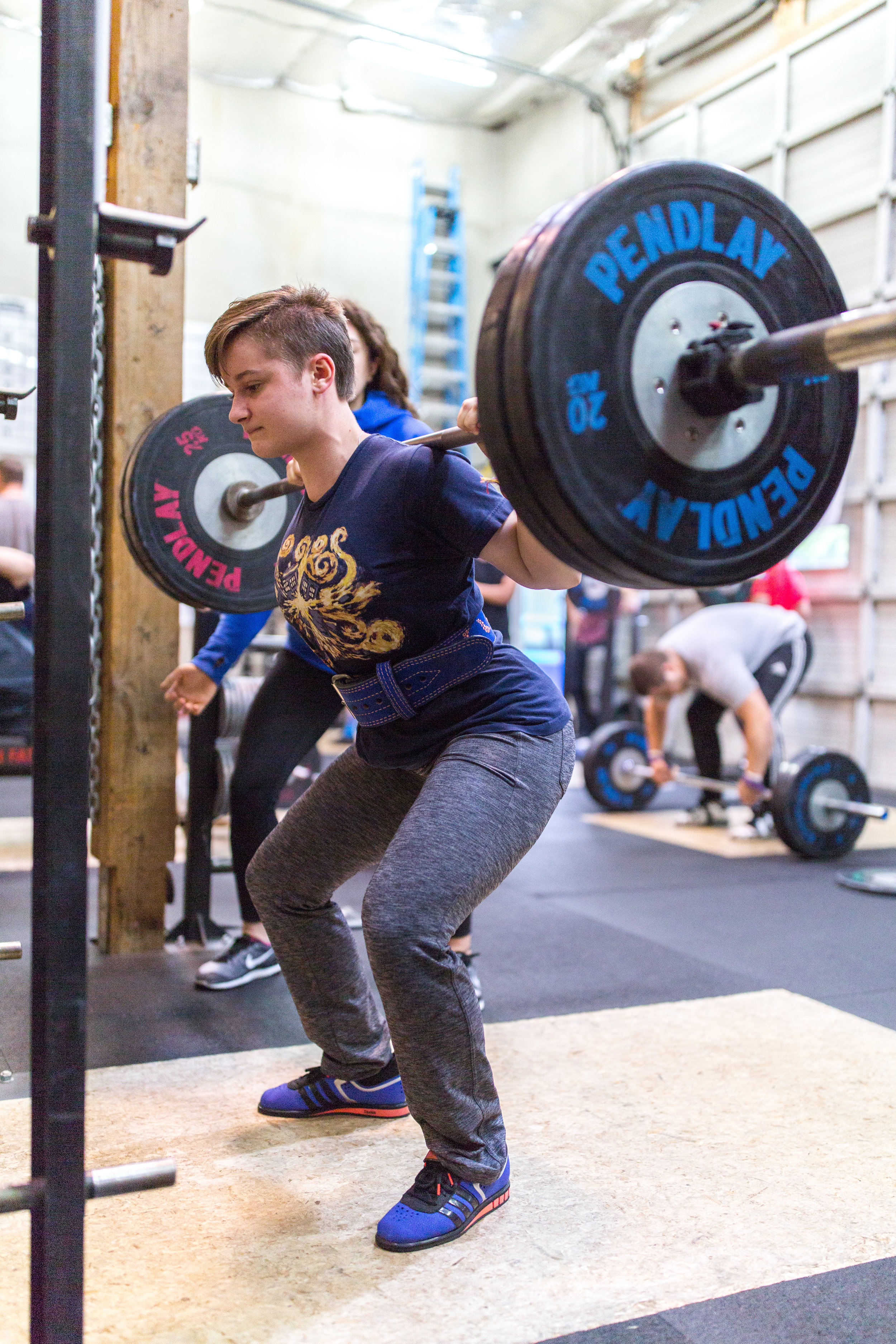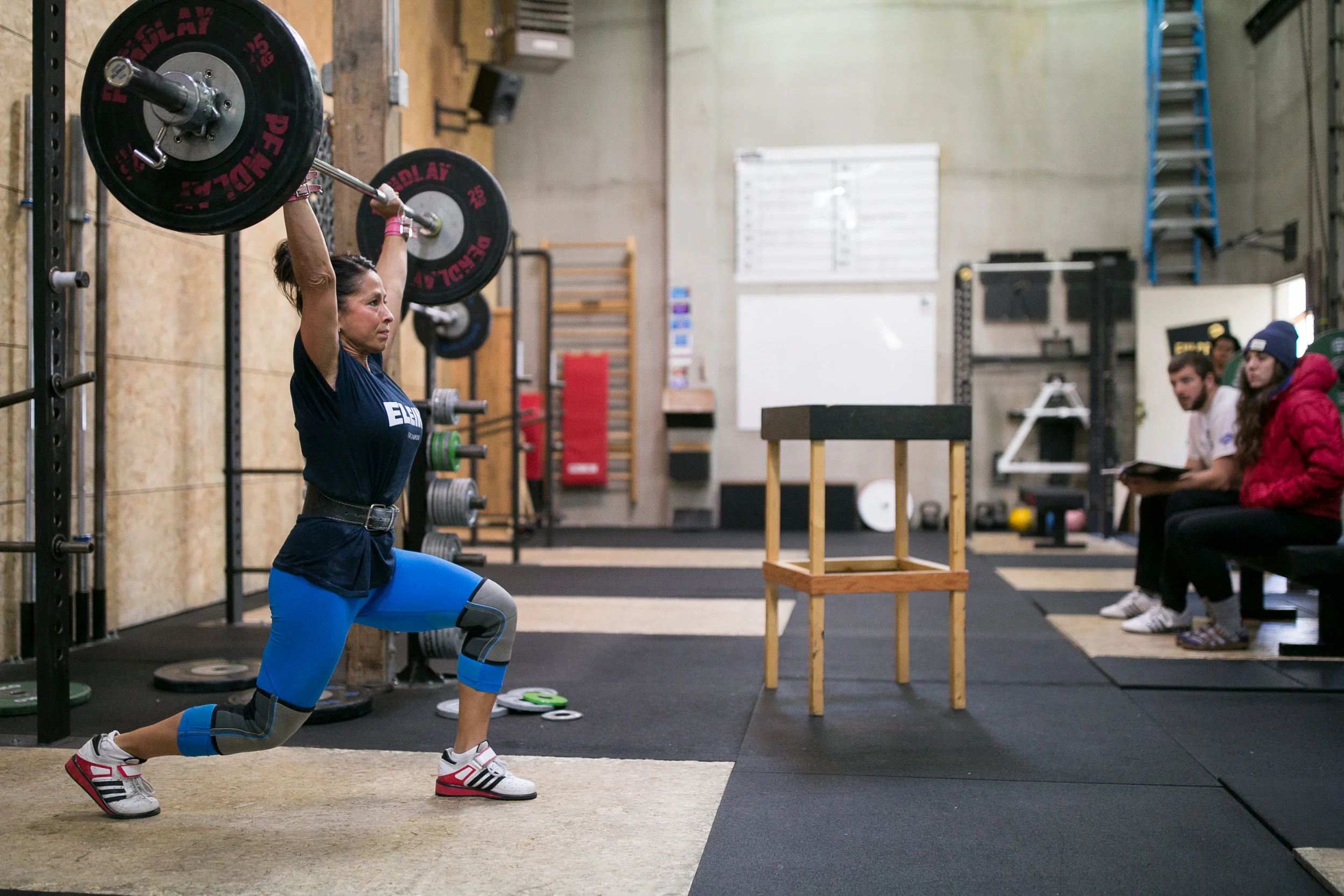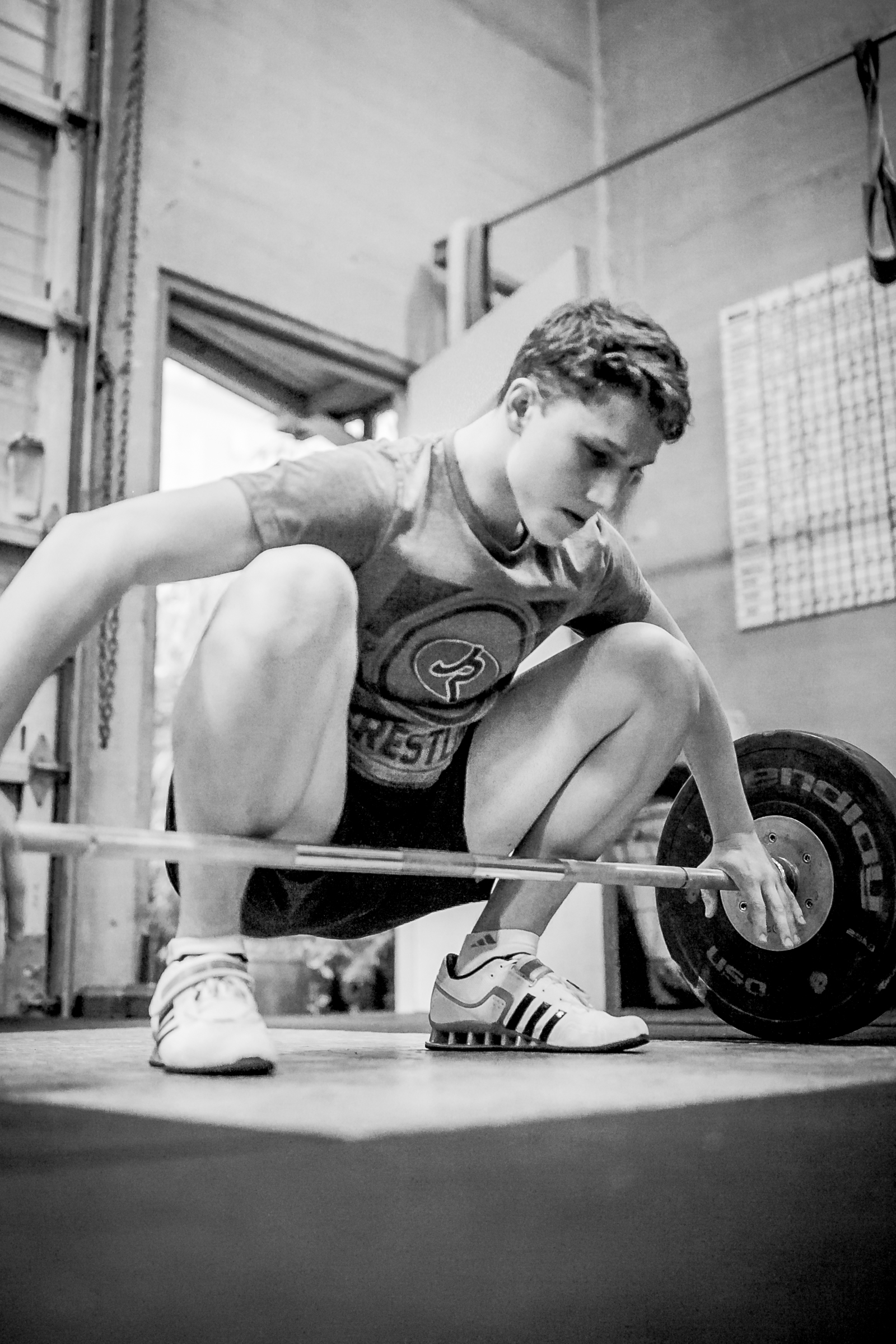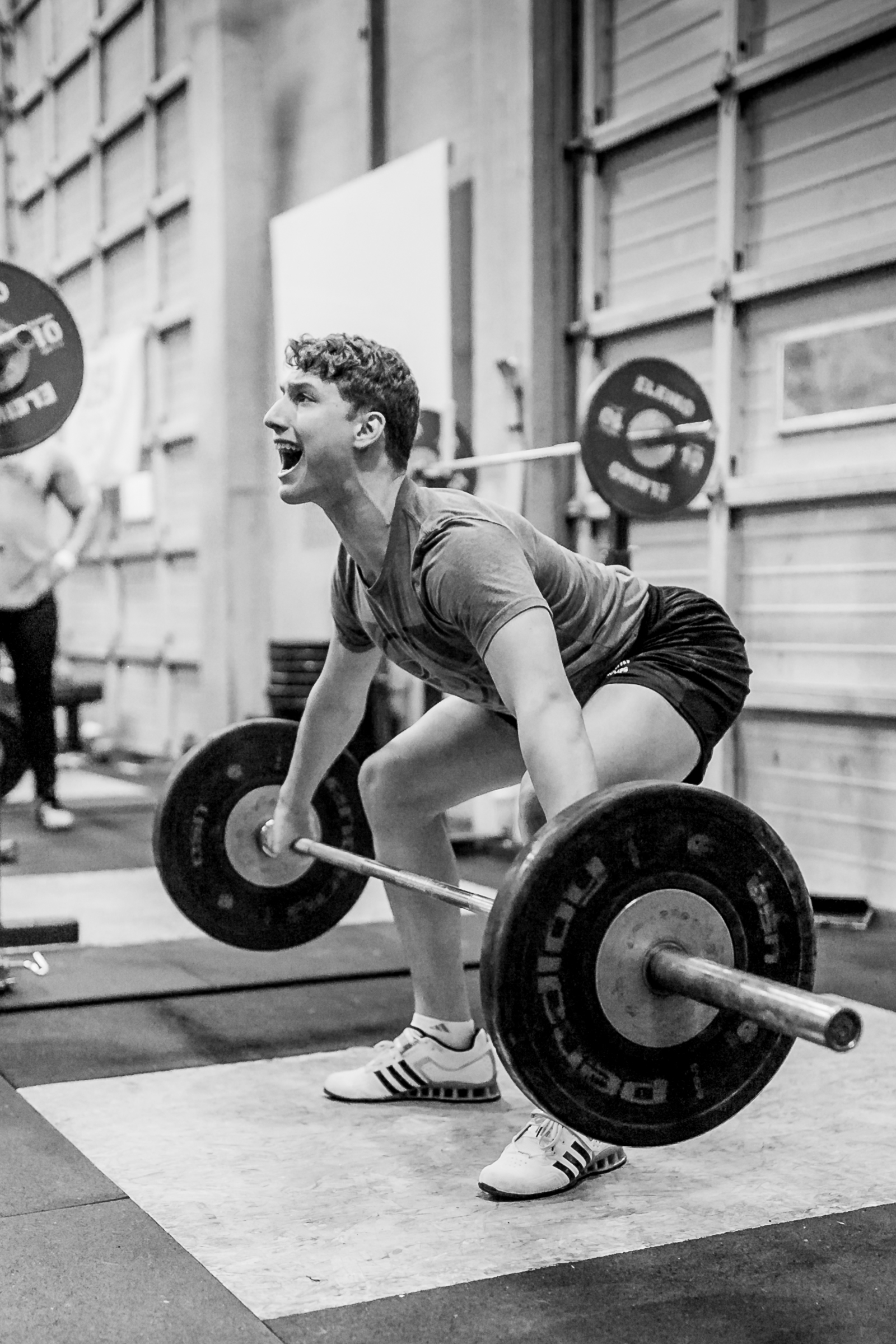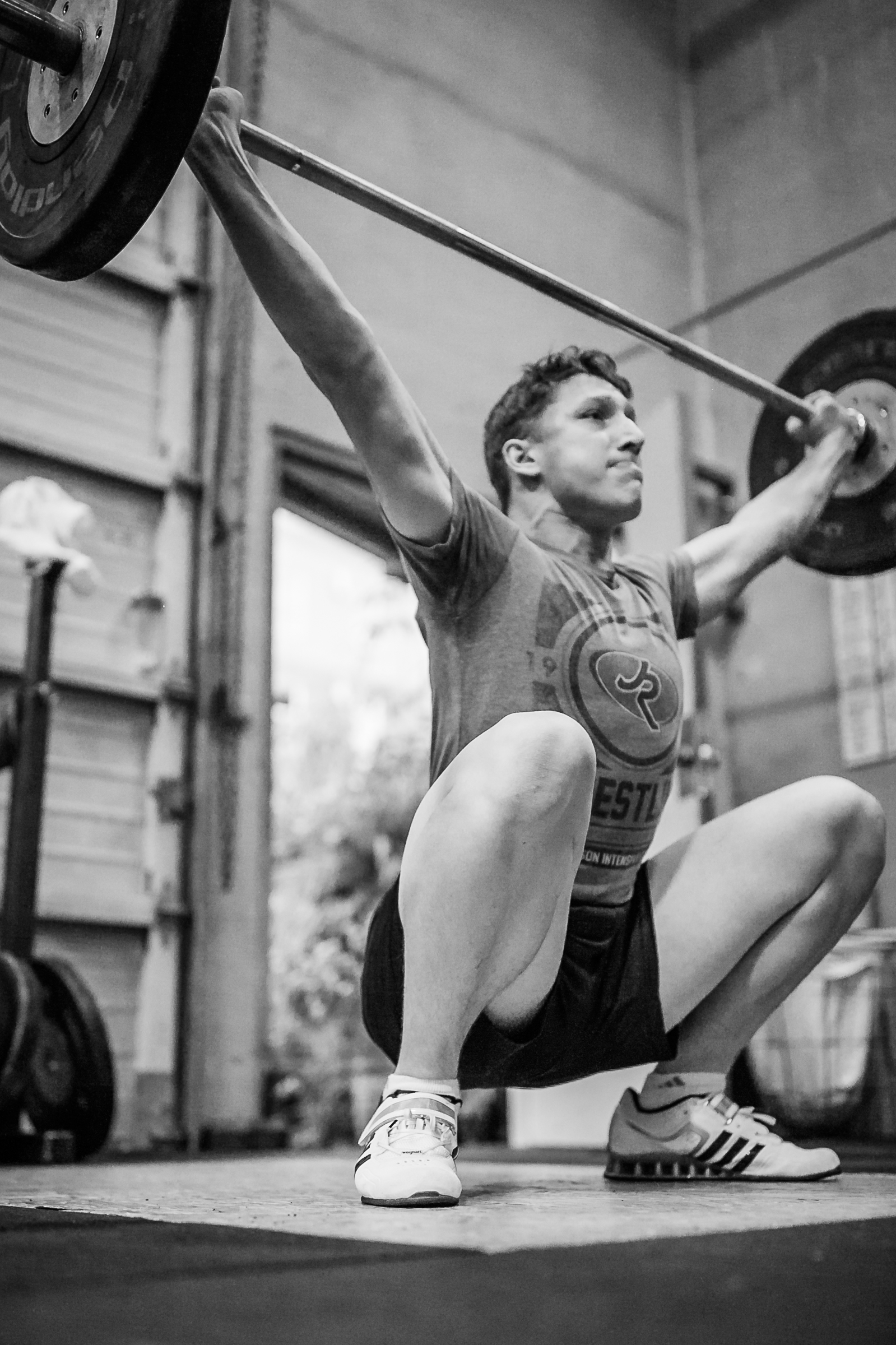This piece was written by a client in his own words about his personal experience with the Fulcrum Training Hall community. This story is meant to inspire, educate, and testify to the fact that strength matters for everyone.
A Skeptical Physician Embraces Weightlifting After Retirement
By Michael R. Soules, M.D.
I had a wonderful medical career as a Reproductive Endocrinology/Infertility (REI) specialist. The first in vitro fertilization (IVF) pregnancy in 1978 occurred while I was doing a REI fellowship at Duke University, but it took 30 years to develop and mature IVF to the standard treatment it is today.
I was fortunate to be in the forefront of the IVF maturation process while spending the bulk of my career in academic medicine at the University of Washington in Seattle. My work led to roughly 9,000 new pregnancies over 35 years, which was incredibly gratifying. I retired in 2014 at age 68 when I was simply too tired at the end of the work day. Interacting with infertility patients is intense.
Before, if someone had asked me to envision my life after retirement, it would have never included formal strength training. At retirement, I was at a normal weight, but out of shape. I was relatively weak and had a hunched-over posture from too many hours bent over an operating room table.
I asked around for a personal trainer, but my enthusiasm was low when I pictured boring half days at a regular gym, using the various exercise machines under the tutelage of a taskmaster.
By a circuitous set of circumstances, I found Michael Street at Fulcrum Training Hall in Redmond, WA. Michael is a strength coach who believes that, “the bar never lies.” Meaning, the best way to gain strength is to use a standard 20 kg steel barbell to perform various lifts using free weights. At first, I was skeptical. I thought I might be too old to gain any real benefit from strength training.
Instead of machines, the “training hall” has floorspace and steel weight racks for performing squats, dead lifts, bench presses and overhead presses. All of this occurs in a controlled—yet raucous—environment where I was introduced to loud hip hop and other new genres of music. (The beat does seem to facilitate the lifts.)
Each type of lift requires learning the proper technique under the watchful eye of a coach to both maximize your gain in strength and to avoid injury. As Michael pointed out, first-time lifters quickly realize they are consciously incompetent.
My strength sessions are three days a week for about 90 minutes each. Each participant keeps a logbook that can be referenced at the next session. For each type of lift, the standard is to do about three to four sets of five repetitions, resting for about five minutes between, while gradually increasing the load by 1 to 5 kg with each set. A good coach, like Michael, constantly observes and keeps track of the weight on my bar and my performance. Often, he does this from across the gym where I wonder how he was able to see the glitch in my technique.
Week to week, there has been a gradual, but steady, increase in my strength. Since the load is increased judiciously, I am rarely sore afterwards. Usually, I just have some, not unpleasant, muscle fatigue for the rest of the day. This just lets me know I did some real work. As for diet, the main recommendation was to increase my daily protein consumption to match my body weight (185 pounds = 185 grams of protein).
Michael considers the squat with the barbell on your shoulder to be the single most important lift that a person can do, as it engages most major muscle groups and builds core strength. My core strength initially was abysmal where the bare 20 kg (44 lbs.) barbell was all I could squat.
It has been very gratifying to gain a significant amount of strength over the past 18 months, which is summarized in the below table. My personal best lifts as of December 2015, when I turned 70, were:
Squat: 101 kg (222 lbs.) Bench press: 61 kg (134 lbs.) Deadlift: 120 kg (264 lbs.)
Also included in the table are the results of my weight, muscle mass and percent body fat as measured by periodic hydrostatic (underwater) testing, which determined I have gained 8 pounds of muscle in the span of a year and a half. However, my percent body fat only went down slightly as I haven’t lost my penchant for desserts.
Candidly, I am pleasantly surprised at how strong I have become. It is wonderful to be able to say that I am currently the strongest I have ever been in my entire life. My balance is good, my spine is straight and I walk with a confident stride. Day in and day out, I feel great. Gaining strength at my age has had a positive effect on my ability to focus and has increased my general confidence as well.
My original goal at retirement was to “get healthier,” but now, I realize that getting stronger is the foundation for overall good health. Strength training not only builds muscles, but also has positive effects on the whole body including bone density, mental acuity and the cardiovascular system. At a time when most people my age have lost a significant amount of muscle mass, it looks and feels good to be gaining it instead. This can only serve me well as I get older.
Golf is my passion and I have gained about 20 yards on my drive secondary to this improvement in my core strength. Heavy chores around our cabin, like pushing wheelbarrow loads of gravel uphill, are no problem. Maybe best of all is the fact that I have found weightlifting to be fun. I enjoy not only the results, but the process and the camaraderie, as well. I would highly recommend formal strength training for successful aging. I plan to keep doing it for as long as I am able.
This personal account was written as part of an article published by Healthy Aging magazine.



